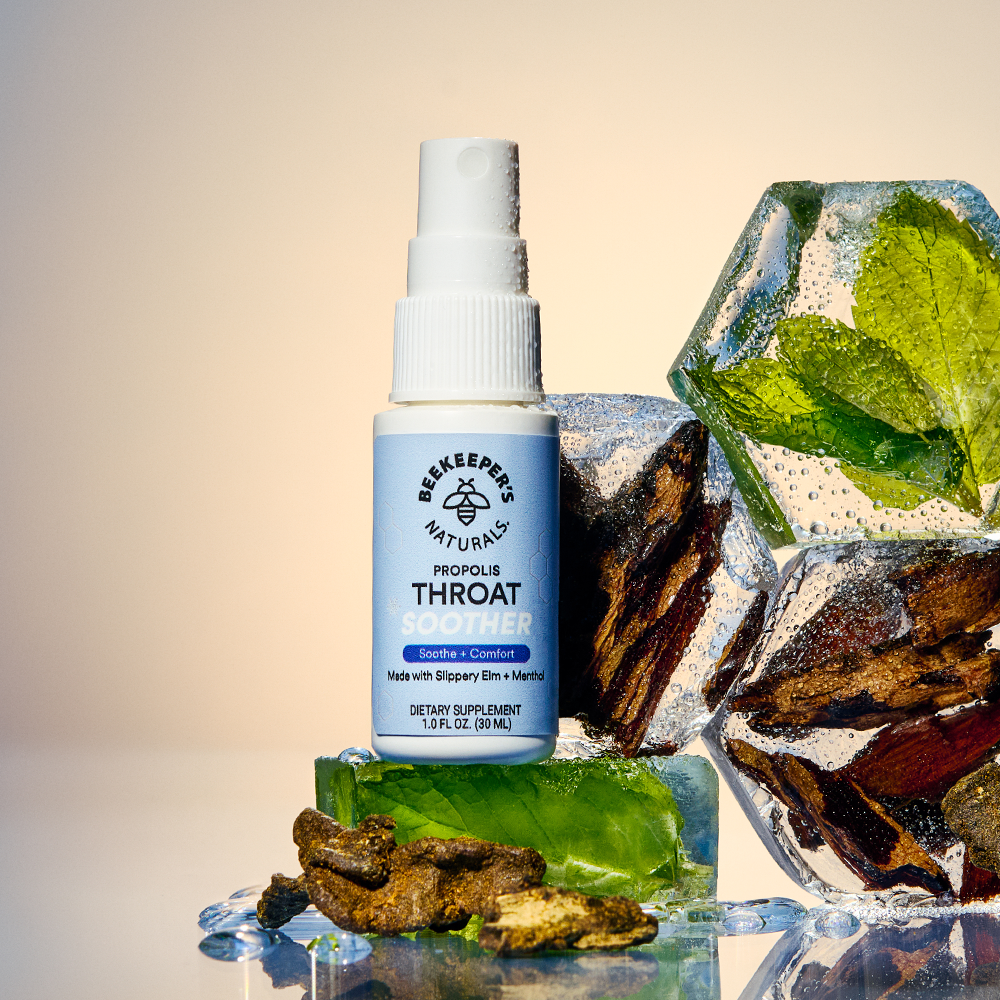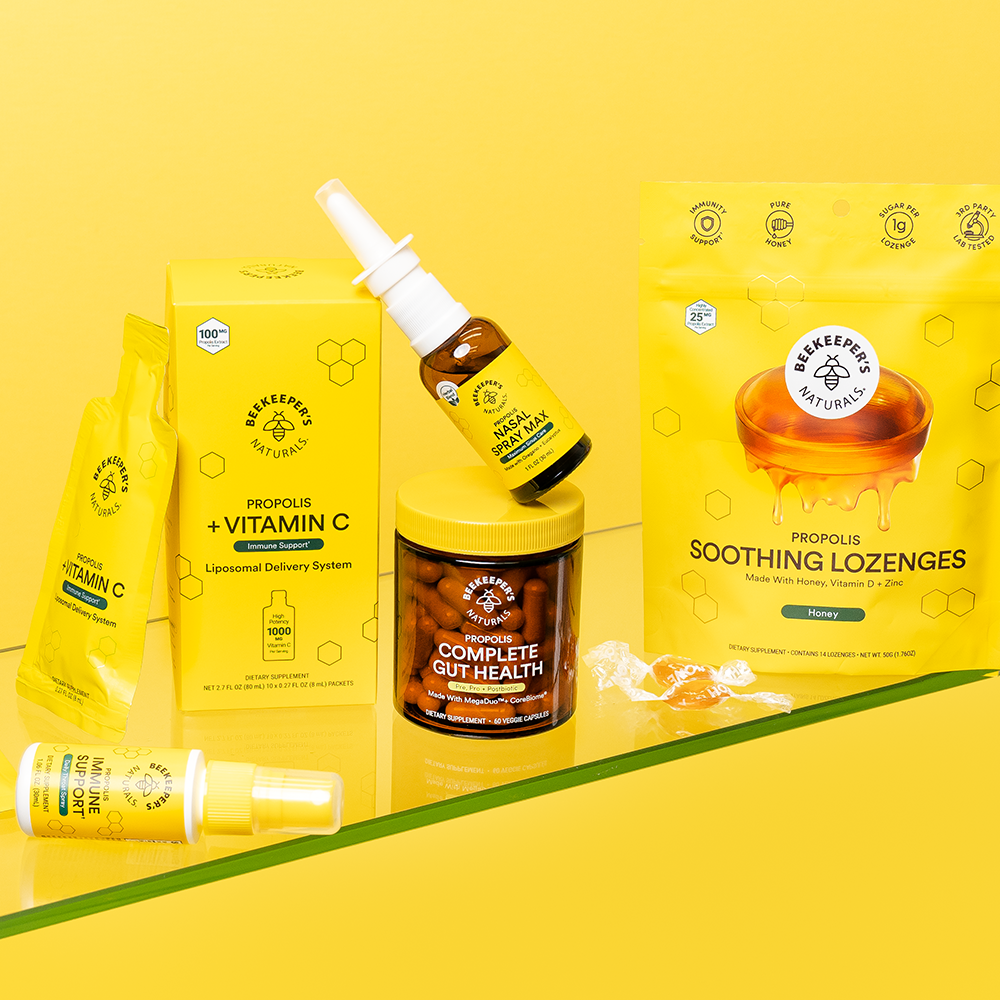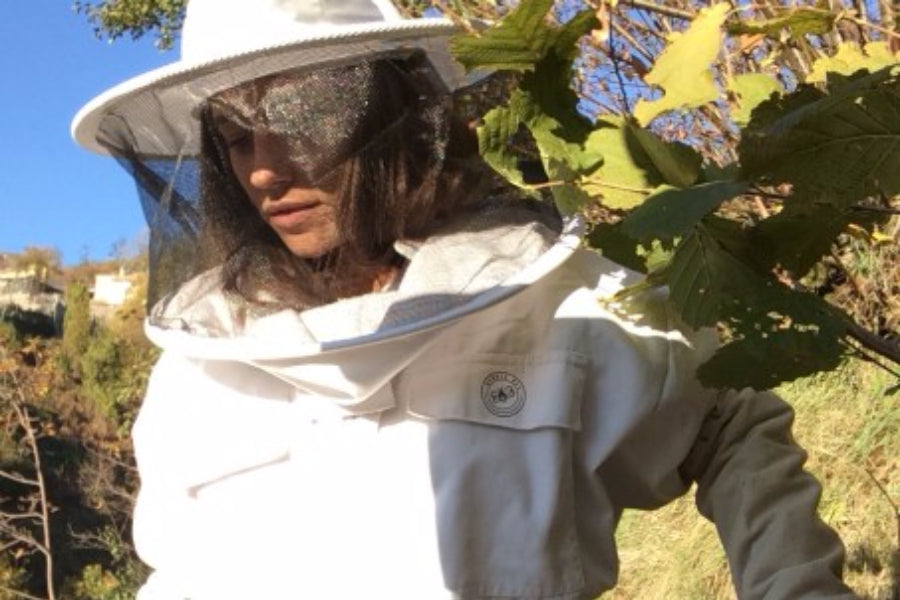In our recent interview with Thomas, a beekeeper from Sweden (check him out on Instagram @bikupa), we learned about why he fell in love with the bees, what he has learned from them and a great tip for dealing with a bee sting! Full interview below.


How long have you been a beekeeper? What inspired you to start beekeeping?
I have worked with bees since 1995. I have a great interest in nature and especially bees, how they work and pollinate flowers.
What was your greatest fear about starting to keep bees or the biggest barrier to entry?
I am a self-taught beekeeper – I have experimented and found my own way of working with bees. I have read a lot of books and magazines about other beekeepers but I chose to go my own way and learn from my mistakes.
We absolutely love your beautiful photos of the bees. What inspired you to start taking photos of these little buzzing creatures?
From the beginning, I started to document the work of the bee garden in written texts, films and in photographs. This is so I can follow the progress year by year. Bees have always been fascinating animals to me. When I was little, my neighbor was a beekeeper and I went there very often to visit. Now I love to share what I love in my photos and videos and via Instagram I found new contacts who like what I do. It’s fun to see how other beekeepers around the world work and I find much inspiration in learning from others.

Tell us three lessons that you’ve learned from the bees.
It is much more difficult to work with bees than you think. It takes so much time and here in the North, the season is so short that you have to work hard during the weeks that are sunny (in Sweden it is about 8 weeks per season that are sunny with about 20-28 degrees). The remaining weeks consists of a lot of rain and cold. One should also keep in mind that the bees are working very efficiently, and just because the bees work stops does not mean that my works stops – I’m present at all times during the season. You have to think that each bee is individual and has its own needs, I’ll be there to help them along the way if necessary. I have worked hard to develop new solutions to make it easier for the bees and for myself. One example of this is that I make my own bottoms for the hives so I can open up the ground underneath and in that way I don´t disturb the bees.
How has working closely with bees changed your perception of nature or the world around us?
It needs several new beekeepers around the world as there is a shortage. Bees are really important for our nature and environment.
What’s your favourite thing about being a beekeeper?
The best part of being a beekeeper is to sit and enjoy hearing the bees work and feel their happiness. Getting a swarm occasionally also makes me happy! It is clear that beekeeping has become popular around the world. When I tell people I’m a beekeeper they show a great interest and commitment and want to know more. Now I send a text message to my friends when it’s time to extract honey and we usually make it into to a fun day with taste testing the honey and we end the day with a nice dinner!
Tell us about your most memorable experience with your bees in your first year.
My biggest memory from my first years as a beekeeper was a spring day, where there was 20cm of snow that started to melt. It was a sunny and beautiful day and the bees started coming out from the hive and it was all yellow around the hive in the snow and they were a little giddy from having been hibernating all winter. It clearly felt that spring was on the way! I can still remember that feeling…
What is the most difficult thing about being a beekeeper?
The hardest part of being a beekeeper is that I can´t communicate with the bees. To do the best I can to please but sometimes it does not work. Sometimes I wish that they could give me an answer so I could help even more. Today I believe that the bees can be significantly affected by the impact of electronic radiation. Bees are very sensitive animals and what happens around the world affects them – it is important that we get people to understand how important the bees are to nature and for all of us to survive.
What surprised you the most in your first year as a beekeeper? What the most unexpected thing that happened with your bees?
What surprised me the first year as a beekeeper was how much honey I got. 1995 was a good honey-year for me when I got about 30 kg of honey from each of my two hives. Today I have 17 active hives. What was unexpected was that my entire family became interested in beekeeping and my closest friends came to the garden and wanted to see and meet the bees, and they still do!
What is you favourite bee product and why?
My honey is a real honey containing antibiotics, vitamins and minerals. A genuine bee product! I do not give sugar to the bees or other chemicals. When I sling honey I don’t heat it up because it removes the water from it and it solidifies faster. It is a longer process but the honey will taste better and last longer.
What’s the weirdest thing you use a bee product for?
In my family we generally use the honey on lighter wounds and animal bites as it contains antibiotics and helps the wound to heal better.
For those out there who fear the bees what words of advice do you have to clear up this misconception?
For those people who are afraid of bee stings: when you get stung remove the stinger as quickly as possible and put a sugar cube on your skin where you got stung and hold it there for about 15 minutes. The sugar sucks up the poison and decreases the swelling. I also want to point out that wasps and bees are different type of animals, bees are gentler and less aggressive, and will not hurt you if you are not a threat to them.
Give us one awesome beekeeping trick that you have learnt (e.g. we’ve met some beekeepers who use essential oil spray instead of a smoker – let us know one of your awesome tricks of the trade).
At the beginning of my career as a beekeeper I tried a number of sprays available on the market but I prefer the old smokers. I want to work in an old-fashioned way when it comes to beekeeping meaning I want to let the bees take care of themselves as much as possible and not disturb them unnecessarily.
What do you have to say to vegans who don’t believe in using bee products? We openly believe that supporting ethical and sustainable beekeepers is an important part of helping the bees and generating awareness, how do you respond to people who question the practices of taking and consuming bee products? What sustainable practices do you incorporate into your beekeeping?
If the bee product is not mixed with chemicals it is a natural bee product. However, this is very difficult to get hold of as many beekeepers want to accelerate the process in order to earn as much money as possible. Beekeeping is a relatively expensive hobby/job but you have to let it take its time and let the bees work alone. For me it is important that the bees are doing well and that they can work alone.

Do you feel that people in your country are fairly conscious of the bees and their importance? We have many wonderful and passionate bee advocates but a large portion of the population is still unaware of all that the bees do for the earth. How is this looked at in your area or country? Do you find that there is a great need to cultivate awareness of the hard work of our buzzing friends?
It’s getting better – the understanding of bees and how important they are to the community. But unfortunately, honey should be 100 times more expensive than it is today as people do not have the knowledge of what the bees are and what they do for us. This means that many will take the bees and honey for granted. We need to increase awareness of the bees and what they actually does for us and for nature. Here in Sweden there has been a resurgence in recent years by the media, which I think is very good.
As a beekeeper, I’m sure that you’ve heard of Colony Collapse Disorder. In North America we have experienced serious issues with CCD over the last decade. How has CCD affected you?
In Sweden, I have not noticed CCD. My belief is that it is simply too cold up here in the North, which does not allow parasites to develop in the same way as in warmer climates.
Is there a neonicotinoid or other pesticide issue in your area? Is the government doing anything to reduce or ban the use of pesticides?
In Sweden, we have come quite far. Pesticides only occur in isolated cases where farmers import banned chemicals.
What bee related lesson or practice do you wish more people would adopt?
For me, the natural aspect of beekeeping is something that I value in my work as beekeeper. I wish that more beekeepers would keep bees as naturally as possible and avoid chemicals. It is us beekeepers visible in social media (@bikupa) that can increase knowledge and understanding of beekeeping. It’s an easy way to reach out to people who have no knowledge but through a picture may find a new interest!
How are beekeepers viewed by your community? What do your friends think when you tell them that you’re a beekeeper?
Everyone I meet has a positive reaction. I like to share the information with new people that I meet in order to increase the knowledge about bees!
What are some recognized uses for bee products that you feel are unique to you or your country?
For us up North it is very popular, especially around Christmas, to melt the wax and make candles. It’s a nice Christmas tradition for the whole family and a nice gift to give away to your loved ones.
Are there any beekeeping related issues or concerns that are specific to your climate?
One problem that we have in this climate is that it rains a lot and it gets humid, making the wooden hives damp and making it more difficult for the bees to reproduce because it does not reach a high temperature in the hive. Today I only use styrofoam hives as they retain heat better and I notice that the bees feel better.
What would you tell people to inspire them to act? What changes can we make in our lives to help the bees?
I believe in being able to grow more organically and protect animals but above all we must find a common way to increase awareness about safeguarding our natural environment. I hope we beekeepers together can make a difference.





